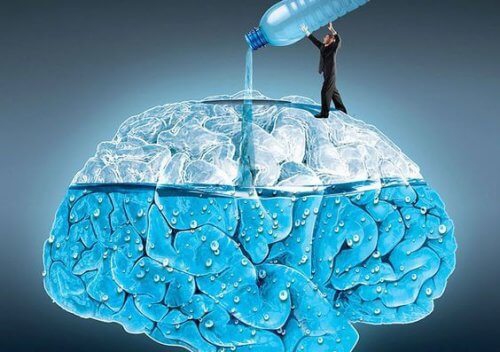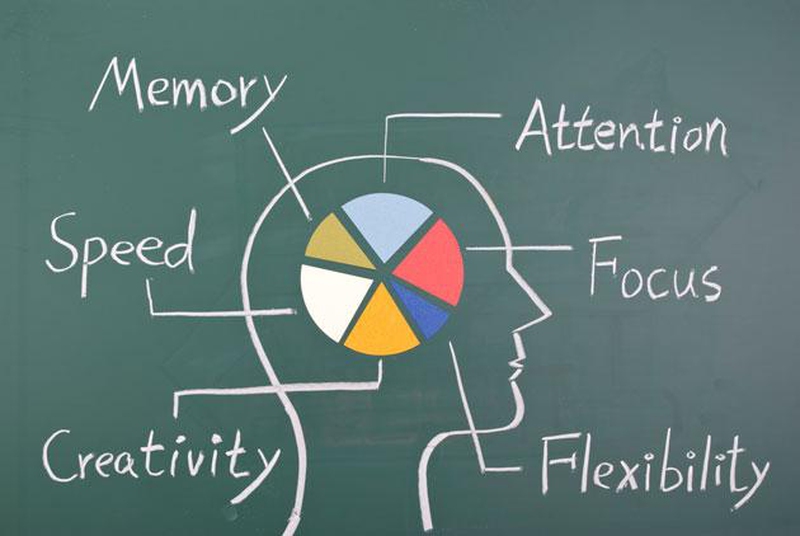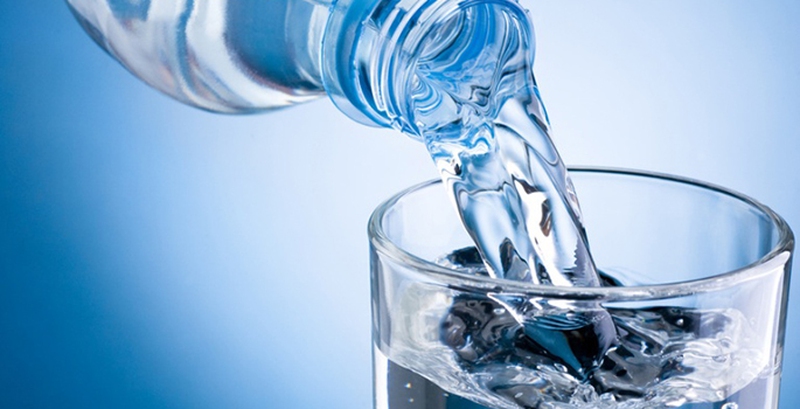Many people have the misconception that being dehydrated may just affect you physically, resulting in you feeling more fatigued and sluggish. The physical effects of dehydration aren't the only problems that you may suffer from. Unable to focus or concentrate, difficulty remembering things and feeling foggy are also common symptoms that can occur from dehydration. To learn more facts about their relation, keep reading on.

What's the Relation Between Water and Brain Function?
The brain has a number of functions in the body and keeps you feeling energized is just one of them. Since the brain is composed of nearly 85 percent of water, it is vital that the brain is provided with the adequate amount of water on a regular basis. The water is responsible for providing the brain with the energy it depends on to perform all of its functions, such as those involved in memory and focus.
The cells of the brain require twice the amount of energy than any other cells found in the body. The brain obtains this energy most effectively from water. When the brain is provided with the adequate amount of water, you will notice that you are more focused, able to think faster, and have more clarity throughout your day.
Aside from providing enough energy to the brain cells, water is necessary for the production of neurotransmitters and hormones. Nearly half the brain's energy is used through nerve transmission which means you need to consume plenty of water to keep the function at your fullest potential.
Properly hydrating yourself on a daily basis will help you not only think better but will also prevent certain disorders, such as attention deficit disorder in both children and adults. Since the brain is unable to access water on its own, you need to consume enough water throughout the day to supply the brain with the water it needs.
How Does Dehydration Affect Your Brain?
Your mood
Not drinking enough water can have a negative impact on your mood. Individuals who are dehydrated will often experience an increase in their mood disturbances. Whether this dehydration is brought on from just not drinking enough water throughout the day or because of exercise you will notice, your mood will change in a more negative direction when you are dehydrated.
Motor and cognitive skills
How severe of an effect can dehydration have on your motor and cognitive skills? Being dehydrated can slow down your reaction time as well as impair your concentration. The motor and cognitive skills of an individual who is dehydrated can be compared to the same motor and cognitive skills as an individual who has consumed the legal limit of alcohol. While you have been warned to not drink and drive, you should also heed this warning if you are dehydrated.
Increase sensitivity to pain
Dehydration can often cause more activity in the area of the brain that is responsible for reacting to pain. Individuals who are dehydrated will often be more sensitive to pain or feel pain at a much quicker rate than those who are properly hydrated. When you are dehydrated, you will have a lower threshold to pain, which will result in you feeling more discomfort than you typically would when you are properly hydrated.
Memory
Many individuals will notice that there is a connection between drinking enough water and brain function that controls memory. When you are well hydrated, you are able to concentrate, focus, and perform with more efficiency. When you are dehydrated, you can struggle more with performing simple task since dehydration can affect your ability to memorize directions, information, or instructions.
Brain challenges
Studies have indicated that individuals who suffer from certain brain disorders can make their condition worse from being dehydrated. Those with ADD, Autism, Aspergers, anxiety, depression and certain brain injuries often do not drink enough water and sometimes they drink no water at all every day.
Another brain challenge, inflammation of the brain, makes it difficult for the body to properly detox harmful substances around the brain. When you are not well hydrated, the inflammation can worsen, resulting in even more free radicals such as chemicals, toxic metals, radiation, and pollutants to filter into the brain more freely. When this occurs, the only way to properly stop these free radicals is through antioxidants and anti-inflammatory treatments. One of the best sources of the powerful antioxidants needed to rid the brain of these free radicals is with Kangen water. Individuals who live with a brain challenge can often see an improvement in cognitive function by almost 30 percent by including Kangen water to the treatment plans.
Tips to Stay Hydrated
Increase your water intake doesn't have to be a struggle. Getting enough water during the day doesn't mean you have to drink water non-stop, there are other ways to consume water. Refer to these quick tips if hydration is something you struggle with.
Drink about 8, 8-ounce glasses of water per day.
Consume fruits and vegetables that help keep you hydrated like berries, apples, grapefruit, spinach, cucumbers, and celery.
Drink water before you become thirsty as feeling thirsty is often an indication that you are already dehydrated.
Hydrating when sick
When you are ill, you need to drink enough water and brain function may already be affected by your illness. Since individuals who are ill struggle, even more, to stay well hydrated, keep these tips in mind the next time you become sick.
Cut out alcohol and caffeine.
Replenish your water supply and vitamins by drinking broth, sports drinks, and water.
Suck on ice chips or popsicles if you are unable to hold down any foods or drinks.
Keep body temperature down by staying in air-conditioned rooms or shaded rooms.




View All Comments /Add Comment